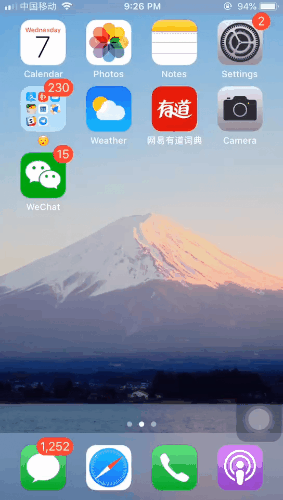They may not be widely known outside of China, but Tencent’s mini program initiative to develop ‘apps’ that live outside of app stores is bearing fruit after it clocked two notable landmarks: 200 million daily users and one million apps.
In recent years, Tencent’s WeChat messaging app has blossomed into a universe of its own with a myriad of services that span from food delivery to getting loans. But the Chinese messaging app wants to lock users in for longer — and its mini program scheme appears to show promise.
Back in January 2017, Tencent introduced “mini programs,” which are essentially lightweight apps that run inside WeChat. When you need to hail a cab, for example, instead of downloading the standalone Didi Chuxing app, you can summon its mini program on WeChat in the blink of an eye.
WeChat has now clocked over one million such mini programs, Tencent founder and CEO Pony Ma revealed today at the World Internet Conference in Wuzhen, China. That makes its ecosystem half the size of the Apple App Store, which recorded 2.1 million apps in April.
Meanwhile, 200 million users are active on WeChat mini programs every day. That’s an impressive number when you consider that China has a total of 800 million internet users.

Feel like shopping on JD.com but don’t have the app installed? Simply pull up its WeChat mini program
Developers of all kinds rush to mini programs as they covet WeChat’s one billion monthly active users worldwide. Furthermore, they can be cheaper and easier to build compared to native apps, making them ideal for low-budget startups, independent game developers, or services that lack a substantial reach in general.
But they can always be useful for tech’s biggest names. That includes e-commerce titan JD.com, second in China to Alibaba with over 300 million annual users and local services giant Meituan Dianping, which has over 350 million annual users. Both operate mini apps on WeChat.
But these slimmer apps don’t always work for everyone. Leisure games have proven to be equally sticky on both app systems, but other more heavyweight apps, such as JD, see a mere 18.2-day user retention rate on WeChat, according to research firm QuestMobile. That’s dwarfed by 53.4 percent on JD’s full-fledge app.
That discrepancy is partly a result of size. As their names imply, mini programs allow files up to only 2MB. They load faster than native apps – which means users may tend to reinstall them in the future – but they also compromise certain features which could undermine user experience.
Of the hundreds of app verticals, games take up 28 percent of all mini programs, followed by life services and ecommerce, according to QuestMobile.
For WeChat, mini programs have much promise. They’ve been an important driver for the social giant’s growing DAUs and advertising revenues, said the firm in its most recent Q2 earnings report.
Other tech giants have climbed on the mini-program bandwagon, with Alibaba and Baidu both rolling out their own versions of mini programs on their major apps over the past few months but Tencent, the originator, has developed the strongest community.
from TechCrunch https://tcrn.ch/2JPf8gg
via IFTTT
